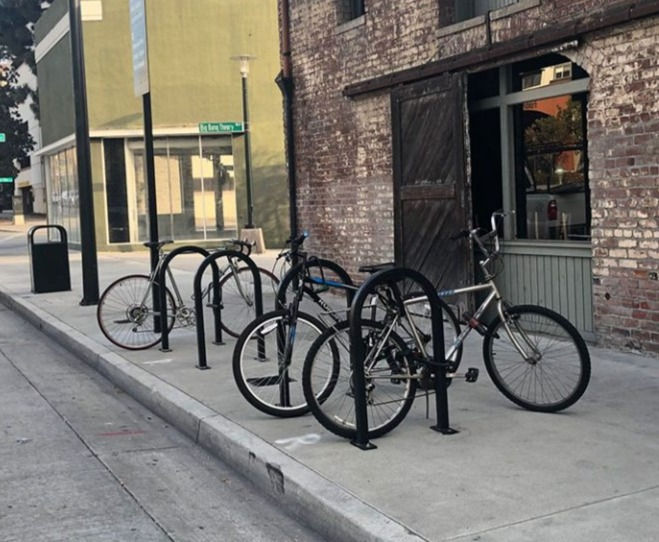Bike Friendly Organisations
- Jon Eastgate

- Apr 3, 2024
- 3 min read
You might see transport and travel as peripheral to the business of a housing and homelessness agency. However, both tenants and staff have to get around somehow, and if they don't need to drive petrol cars to do so this can reduce your footprint significantly.

EVs are part of the solution to this but they are expensive and have their own impacts, both in the carbon embedded in their manufacture and in the fossil fuels currently used to make the electricity that charges them. By far the cheapest and most effective way to reduce transport emissions is to use active transport - walking, cycling (including e-bikes), scootering and so on.
The other good reason for paying attention to transport is that many social housing tenants can't get around by car. Some can't drive because of disability or health issues, while others simply can't afford to own a car. Cycling advocates Melissa and Chris Bruntlett estimate that around one third of people can't drive for one reason or another, and this is likely to be higher for the populations we serve.
In 2023 the Queensland Government released a simple guide, Become a Bike-Friendly Business. While it's mainly aimed at commercial businesses there's also a lot that social organisations can learn from it, and it's not that difficult. Here's the three highlights.
Locate in a area that is accessible by bike - near bike-ways or safe streets. You might not be able to control this entirely, especially as our urban cycling infrastructure is often quite poor, but at least be mindful of it.
Have safe, secure and visible bike parking at your premises. People will want somewhere to park their bike that is visible to themselves and other people and that they can lock up to. If it's out of the weather, that's a bonus.
Have a culture of welcome towards people who bike - your staff should be knowledgeable about possibilities of bike travel and parking at your office and welcoming of people who arrive by bike.
I would add that for your staff, a fourth thing that helps is end-of-trip facilities - A secure place to lock their bikes, and a place to have a quick shower and get changed after riding to work. And why not make it easy for them to ride for short work trips, say to visit tenants and properties, or attend meetings? Why not include a couple of e-bikes or e-scooters in your vehicle fleet, or make it easy for staff to use their own? Shifting some of your work travel from car to bike or walking would reduce your costs and your greenhouse gas emissions and help your staff be a little healthier.
I've been a cycle commuter all my adult life, riding to university and then to my various workplaces in Maryborough and Brisbane. Now that I'm self-employed and work from home, I ride or walk to visit clients in most places within a radius 5-8 km, and for longer journeys I look for a public transport alternative. Queensland Rail has recently started allowing bikes on trains, so I've done a few longer journeys by train and bike. I do drive my car, of course, because neither our cycling infrastructure nor our public transport can get me everywhere I need to go - I average around one car trip a month for work, either longer trips or trips where I have to carry a lot of gear.
Of course not everyone can ride a bike. Some people physically can't for health reasons or because they never learned. Other people feel unsafe riding on roads and most parts of Australia have fairly poor bike infrastructure. You'd never want to make something like this mandatory, or shame people for not doing it. Still we need to stop acting as if everyone can (or should) get around by car, and open up the possibility for various different modes of transport for both our tenants and our staff.



Comments